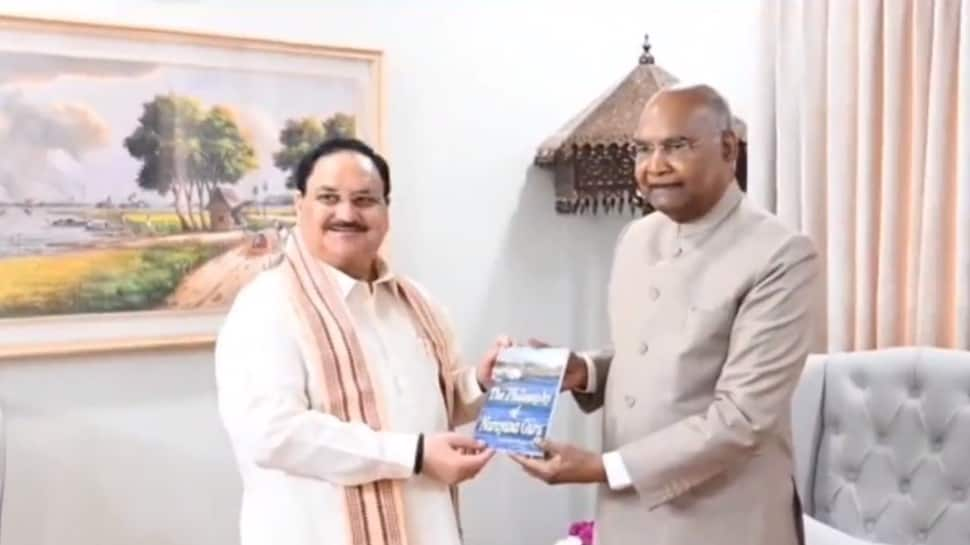The Union government today constituted a committee headed by former President Ram Nath Kovind to explore the possibility of 'One Nation, One Election' which envisages the holding of general election and state Assembly elections simultaneously. The committee will explore the possibility of bringing legislation regarding it. A parliamentary standing committee, the Law Commission and Niti Ayog had earlier examined the 'One Nation, One Election' proposal and submitted reports on the subject. The government has decided to call a Special Session of Parliament from September 18-22 where it is speculated that the government could bring a bill for this proposal to take effect.
Soon, after the announcement, BJP national president JP Nadda met former President Ram Nath Kovind at the latter's residence in New Delhi. The meeting assumes significance as the Centre constituted a committee headed by the former President to explore the possibility of 'One Nation, One Election'. If the proposal comes into effect, elections for Lok Sabha and state assemblies across India will be held simultaneously with voting taking place at the same time. The government has decided to call a Special Session of Parliament from September 18-22 where it is speculated that the government could bring a bill for this proposal to take effect.
Meanwhile, Union Parliamentary Affairs Minsiter Pralhad Joshi said on Friday that the report of the committee will be discussed in the Parliament and asked why the Opposition is scared of it. "There will be a discussion (on 'One Nation, One Election') in Parliament. why is the Opposition scared (about it)? Democracy is about evolution; India is the mother of democracy. This is part of evolution," Pralhad Joshi said.
"In this evolution, every new proposal that benefits the nation will be discussed. For now, a committee has been formed and they will give their suggestion and then a discussion will be held on the subject. There were simultaneous polls for Lok Sabha and State Assemblies till 1967. Now there are polls every few months and it is a huge expenditure. This must be discussed," Pralhad Joshi added.
Uttar Pradesh Chief Minister, Yogi Adityanath speaking about 'One Nation, One Election' on Friday said that in a democratic set-up, with stability of government, speedy governance is needed for development and with this point of view, 'One Nation, One Election' is a commendable attempt. Speaking to ANI CM Yogi said, "For a rich democracy, political stability is really important and in a democratic set-up, with the stability of government, speedy governance is needed for development, with this point of view 'one nation, one election' is a commendable attempt."
Expressing his views on the policy, CM said, "We are happy that the committee formed for 'One Nation, One Election' is formed under the chairmanship of our former president (Ram Nath Kovind). "For this innovative initiative, I whole heartedly want to thank PM Modi on behalf of citizens of Uttar Pradesh," CM Yogi further added. Highlighting the importance of the proposal, Yogi Adityanath said, 'One Nation, One Election' is the need of the hour and it is important as elections which were being held time and again act as an obstacle in the path of development because election procedures take at least a month and a half's time which obstructs the development process. So it is important that Loksabha elections, Assembly elections and other kinds of elections be held at the same time."
Rajya Sabha MP and BJP leader Sushil Modi said, "...If the elections are held at a time, the pace of development will increase & will save the money spent on elections. The percentage of voters casting their votes will also increase. The country's voter is aware & knows whom to vote for..." Simultaneous elections for the state assemblies and the Lok Sabha were held till 1967. However, in 1968 and 1969 some legislative assemblies were dissolved prematurely followed by the dissolution of the Lok Sabha in 1970. This forced a change in electoral schedules for the states and the country.
















